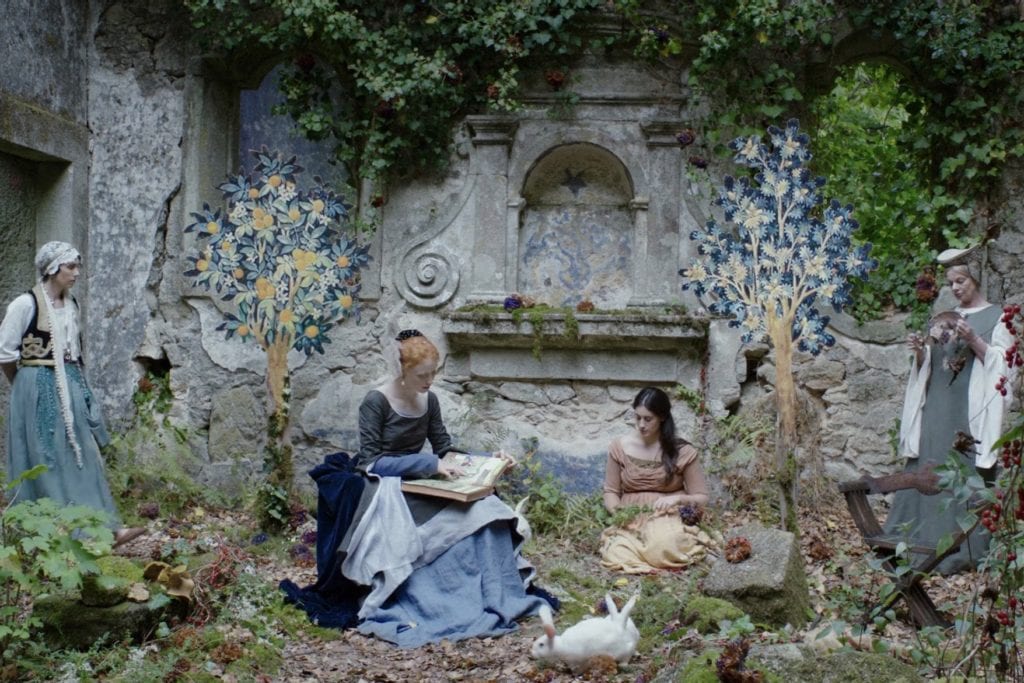
Dir. Rita Azevedo Gomes. 136 minutes.
3/5
Lord Von Ketten (Marcello Urgeghe) is called to war, leaving his new bride (Clara Riedenstein) alone at his estate in Italy for 11 years. Refusing to retreat to her own home in Portugal, she instead works to create a new home of Von Ketten’s rugged castle.
Period films like “Girl with a Pearl Earring” and “Barry Lyndon” have often been called “painterly.” “The Portuguese Woman,” however, truly earns this label — it is, perhaps, more painting than film. Shots are arranged in a shallow space, populated by characters who move in a fluid yet choreographed way, creating frame after frame that could, at a glance, actually be mistaken for a work from Renaissance Italy or Holland. In fact, the imagery of “The Portuguese Woman” is sometimes so mesmerizing that one forgets to read the subtitles, as a result of which the plot, although slow-paced, can become rather tricky to follow. Too-pristine historical costumery, usually the mark of a cheap production, here enhances the impression that one is watching an antique canvas sprung to life.
Most of “The Portuguese Woman” is spent in decorous conversation or wandering through picturesque meadows. There are a few amusing moments of historical eccentricity: for instance, a scene in which Lord Von Ketten and his wife bathe standing upright in barrels, with a curtain drawn between them to preserve their modesty from one another. This scene, like the film as a whole, wins the viewer over through sheer commitment to its unusual task.




